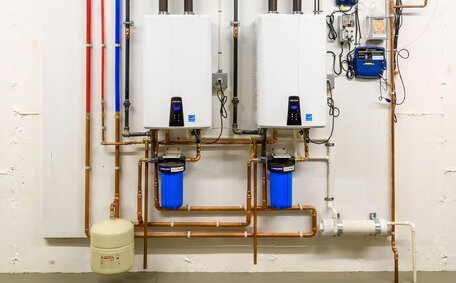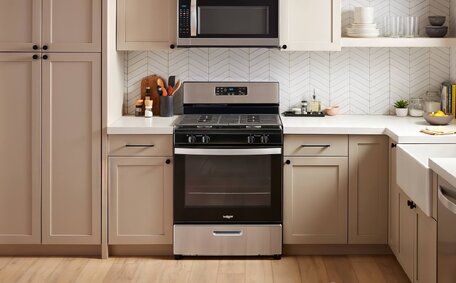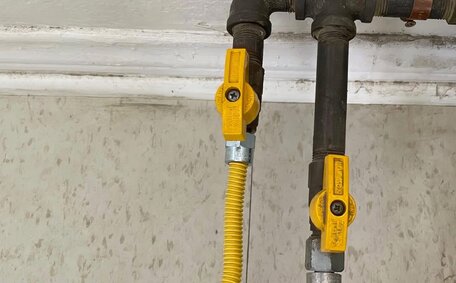
How Hard Water Hurts Hot Water Heaters
Hard water leaves mineral deposits in heaters, pipes and tanks. This limescale reduces efficiency, lifespan and hot water availability. Contact us for affordable water softening solutions.
Read MoreBlocked drains are a common issue faced by homeowners across Australia. These frustrating blockages disrupt daily life and require prompt attention. The most frequent causes of blocked drains include grease buildup, hair, soap residue, foreign objects, tree roots, and a collapsed pipe.
Blockages can occur in any drain within a property, such as kitchen sinks, bathroom sinks, showers, bathtubs, and toilets. The severity ranges from a minor clog that is easily cleared to a major blockage requiring professional drain cleaning. Warning signs of a blocked drain include gurgling sounds, slowly draining water, bad odours, and backed-up water.
When a drain becomes blocked, the instinct may be to grab tools and attempt clearing it yourself. However, this often leads to more harm than good. While limited minor DIY drain clearing is allowed, most substantial blockages require professional blocked drain repair by licenced plumbers to avoid property damage or injury.
When it comes to plumbing repairs in Australia, there are important regulations homeowners and tenants must follow. Performing unauthorised plumbing work as a DIY project can be illegal, dangerous and lead to serious consequences.
Under national Construction, Plumbing and Drainage laws, any major plumbing tasks require a licenced plumber. This includes hot water systems, gas fittings, drainage systems and sewerage lines. Penalties of up to $22,000 can apply for unlicensed drainage works.
All plumbing and gas work in Australia must comply with the national Plumbing Code of Australia, which sets the standards and regulations. Licenced plumbers are trained and certified to safely carry out repairs to code.
There are some basic rules determining what DIY plumbing repairs are permitted:
While quick DIY fixes may seem convenient, they can worsen the issue if done incorrectly. Always confirm with your state plumbing authority what is lawful without a licence for your specific repair. When in doubt, call a professional.
As a tenant, there are strict limits on what minor plumbing repairs you can legally carry out yourself. While major blockages require a licenced plumber, some quick fixes of small clogs are permitted.
Tenants are generally allowed to try clearing simple sink, basin, shower or tub drain blockages on their own using basic tools like a plunger, drain snake or commercial drain cleaner products. However, you cannot dismantle, remove or alter any fixed pipes or drains. Use drain rods gently to avoid scratching surfaces or pipes.
If attempting to loosen a clog with a drain snake, only insert it as far as you can reach with your arm. Never try to clear a blockage beyond the initial u-bend. Using a plunger is fine, but do not use excessive force.
While these DIY methods may provide a temporary fix, recurring or more serious blockages need professional hydro jet drainage cleaning. If you cause any damage, your landlord can require you to pay for repairs under your tenancy agreement.
Importantly, if water starts flooding back up a drain and cannot be cleared, immediately stop trying to fix it yourself and contact both your landlord and a licenced plumber to prevent property damage.
Drain snakes and plungers can provide quick relief for minor sink, basin, shower and tub drain blockages as a short-term fix. However, they must be used cautiously to avoid damaging drains.
Only insert it as far as you can reach comfortably with your arm to clear clogs in the initial drain bend.
Never force it past this point or you risk scratching enamel or breaking pipes. A drain snake, also called a drain auger, is a long, thin, flexible metal cable. A drain snake, also called a drain auger, is a long, thin, flexible metal cable.
Standard household plungers use suction to try dislodging clogs. First seal the plunger over the drain opening to form a tight pressure fit. First seal the plunger over the drain opening to form a tight pressure fit.
Repeat several times if needed. Avoid excessive force to prevent damage.
While handy for minor issues, drain snakes and plungers cannot fix severe or recurring blockages. Using them incorrectly risks making the situation worse. If problems persist, cease DIY attempts and call a professional plumber to safely clear drains and inspect for underlying issues.
For minor clogs, homemade drain cleaners using common kitchen ingredients like baking soda, vinegar, and boiling water can provide an effective and safe solution.
Start by pouring 1/2 cup of baking soda down the blocked drain, followed by 1/2 cup of vinegar. The chemical reaction between the base baking soda and acidic vinegar produces fizzing and bubbles that help dislodge gunk. Let it sit for 5-10 minutes.
Pour a kettle full of boiling water down the drain. The hot water will melt and wash away grease deposits. For tough clogs repeat the baking soda, vinegar and boiling water treatment twice.
This non-toxic method is safe for PVC, metal or earthenware pipes. However, it is only suitable for clearing simple sink or tub blockages, not main lines.
The ingredients are very affordable. Persistent issues still require a professional plumber.
When living in a rental property, the division of responsibility between landlord and tenant for plumbing repairs and blocked drains must be clear. There are defined limits on what DIY fixes a tenant can legally carry out.
Tenants are generally permitted to try using drain snakes, plungers or natural drain cleaners to clear simple sink or basin clogs themselves. However, this only applies to blockages inside the property. For any external drainage system issues, or leaks and burst pipes, tenants should never attempt repairs.
It is the landlord’s responsibility to cover the costs and repairs for severe, external or recurring blockages impacting waste pipes and main drains. Tenants should immediately inform their landlord or property manager in these instances. Any repairs on the property’s water supply and drainage system can only be performed by licenced plumbers.
If a tenant causes damage through DIY plumbing attempts, such as a scratched toilet or broken pipe, the landlord can request compensation. Tenants should always check if they are allowed to try clearing a blockage first, and cease if problems persist.
Clear communication between landlords and tenants is key. Tenants should keep their landlord updated on any plumbing issues to prevent disputes. Landlords must ensure blocked drains and leaks are swiftly repaired by qualified plumbers to limit disruption and avoid potential health hazards.
As a landlord, you are responsible for arranging professional repairs when tenants report significant blocked drains or water leaks. Legally, only licenced plumbers can perform this work.
If a tenant notifies you of a major external or internal blocked drain, sewage overflow, or burst pipe on the property, immediate action is required. You will need to contact a licenced plumber to inspect the issue and carry out necessary repairs.
For severe blockages, a plumber may need to use specialised hydro jet or electric eel machines to clear solidified deposits or objects lodged in pipes. They can also employ camera inspections to identify any underlying problems requiring repair, like broken sections or tree root invasion.
You should have a trusted, qualified plumber you can call for emergency repairs and to prevent health hazards. Ensure blocked drains are cleared fully, not just temporarily, before paying for the completed work.
While DIY methods may fix minor clogs, significant blockages often require excavation, pipe replacement or drain realignment. Attempting to repair these yourself as a landlord risks heavy fines. Leave it to the professionals.
As a tenant, you have limited but important responsibilities when it comes to blocked drains in your rental property.
If you notice gurgling sounds, slowly draining water or foul odours from sink and basin drains, first try using a plunger, drain snake or non-toxic drain cleaner like baking soda and vinegar to clear a minor clog.
However, you should immediately inform your landlord or property manager if:
Legally, tenants are not permitted to make alterations to plumbing systems. Severe blockages often require excavation or replacement of damaged pipes which must be handled by licenced plumbers called in by your landlord.
Always follow your tenancy agreement terms regarding emergency repairs and keep your landlord updated on any plumbing issues. Never attempt to dismantle, remove or repair pipes yourself.
Trying to fix a blocked drain yourself makes sense for minor clogs that you can clear using a plunger, drain snake or natural drain cleaner. However, certain situations require you to stop DIY attempts and call in a professional plumber for assistance.
You should contact a licenced plumber immediately if:
A professional plumber has specialised equipment like hydro jetting machines to thoroughly clear solidified blockages and obstacles. They can also perform camera inspections to identify issues requiring pipe repairs or replacement. Don’t risk property damage or fines - call the experts.
Calling in a professional plumber to repair a blocked drain ensures the issue is fixed properly, but also comes with costs for labour and any necessary materials or equipment.
For major external blockages, plumbers typically charge $150-$250 as a callout fee then $100-$150 per hour on top of that. Hydro jet drain cleaning usually starts from $300-$400 but can exceed $1000 for long pipes.
Camera inspections are around $250. Any pipe repairs or replacement add more costs.
The process involves:
For landlords, all costs are your responsibility as repairs to drainage systems can only be done by qualified plumbers. Keep receipts to claim on tax.
For tenants, while DIY methods are cheaper, persistently calling a plumber due to recurring issues will become expensive for you and your landlord. Save by clearing minor basin clogs yourself, but call in professionals when needed.
In summary, whether DIY blocked drain repairs are legal or not in Australia depends on the specific circumstances. Tenants have some limited ability to try clearing simple sink and basin clogs themselves using plungers or drain snakes. Severe, external or main line blockages require professional repair by licenced plumbers arranged by landlords.
However, they cannot alter or repair any fixed drainage pipes.
Key takeaways include:
Being aware of the regulations, risks and responsibilities around DIY and professional plumbing repairs allows tenants and landlords to address blocked drains promptly and lawfully.
Hard water leaves mineral deposits in heaters, pipes and tanks. This limescale reduces efficiency, lifespan and hot water availability. Contact us for affordable water softening solutions.
Read MoreIt’s important to routinely check your gas appliances for any issues. Signs of problems include gas leaks, strange sounds, odd smells and more. Have a professional inspect your gas appliances annually and service them regularly for safety.
Read MoreUpgrading your gas meter is a simple process completed by registered technicians. It involves disconnecting your gas supply for 15 minutes to swap the old meter for a new digital smart meter. The upgrade is free and improves accuracy.
Read MorePicnic Point, 2213 NSW
We will call back as soon as possible.




